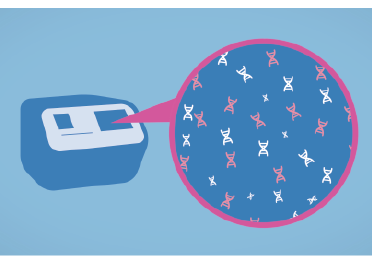

Free DNA (cfDNA) is a piece of DNA that is released from the cell and circulates in the blood.
During pregnancy, small amounts of cfDNA from the placenta will enter the mother's bloodstream. From the 7th week of pregnancy, the free DNA of the fetus begins to appear in the mother's blood. By the 10th week of pregnancy is enough, the rate of fetal DNA should be above 4%, the new test has high confidence.
The NIFTY™ test is done from the 10th week of pregnancy by taking a small amount of blood from your mother's veins.
Free DNA in the mother's blood will separate and sequence the entire genome with NIFTY™ proprietary Next Generation Sequencing (NGS) technology.
Sequencing data was analyzed using bioinformatics algorithms for chromosomal abnormalities. If there is excess or analytical loss, there is evidence of an increase or decrease in the number of chromosomes.
In order to produce reliable results, the analytical software must have enough bioinformatics populations to produce abnormalities. NIFTY™ currently has the largest data in the world with more than 2 million cases.
NIFTY™ technology is capable of detecting over 99% of Down syndrome, Edwards syndrome and Patau syndrome. Despite its high detection capacity, NIFTY ™ and NIPT tests are generally only screening tests. This means that all NIPT services can not have 100% absolute accuracy, such as amniocentesis.